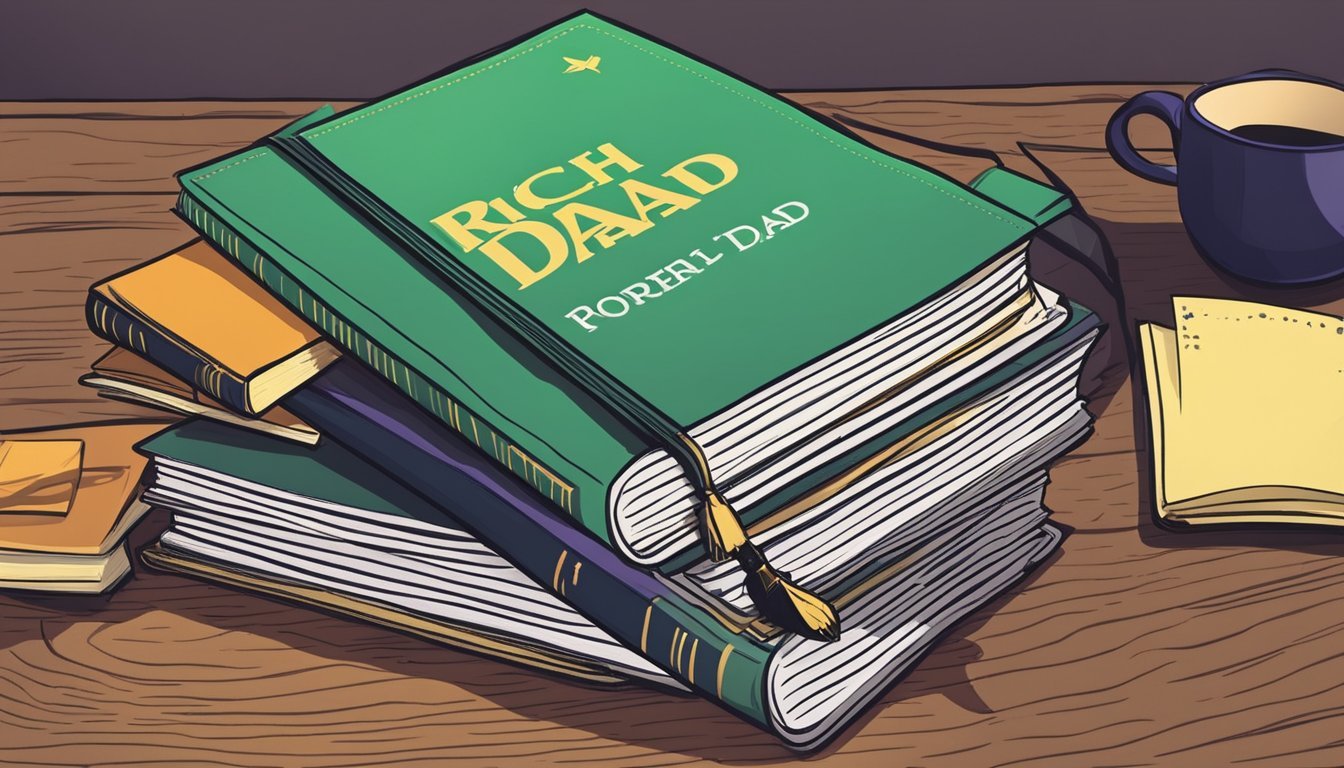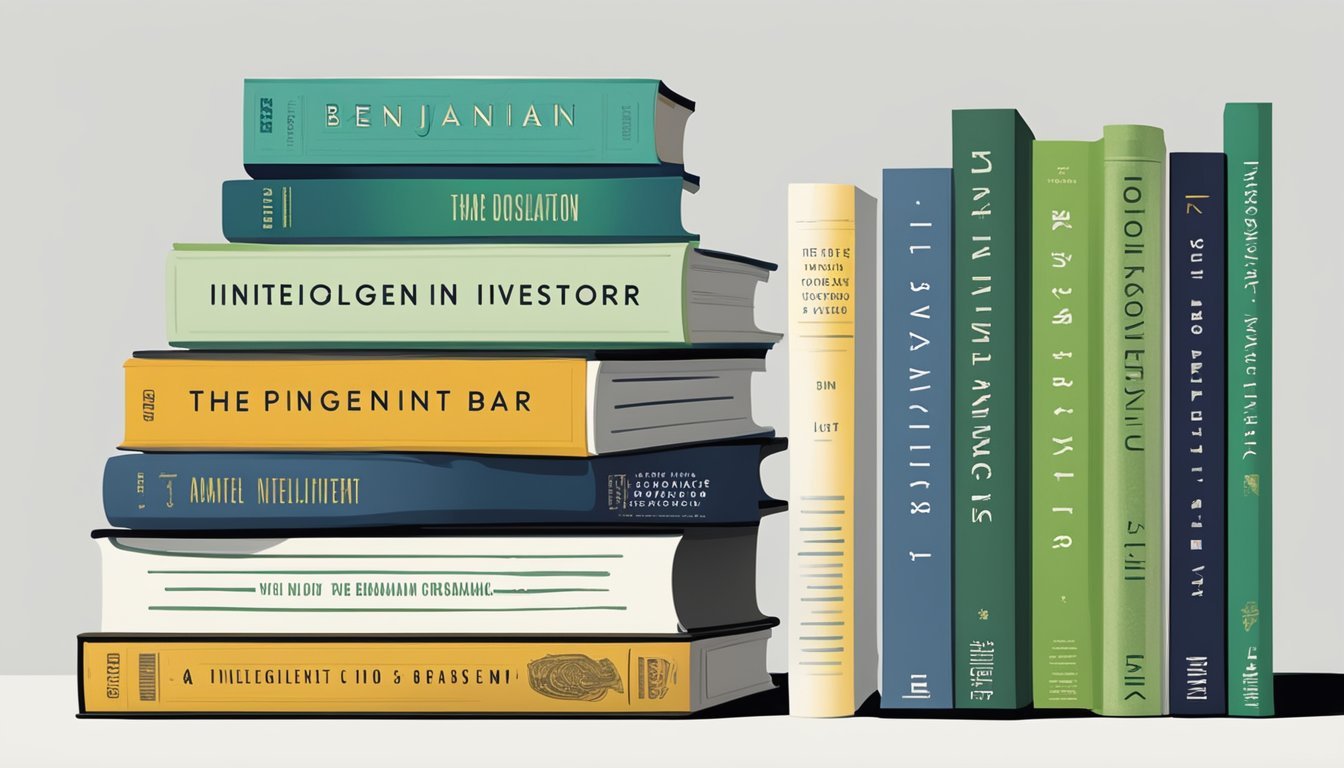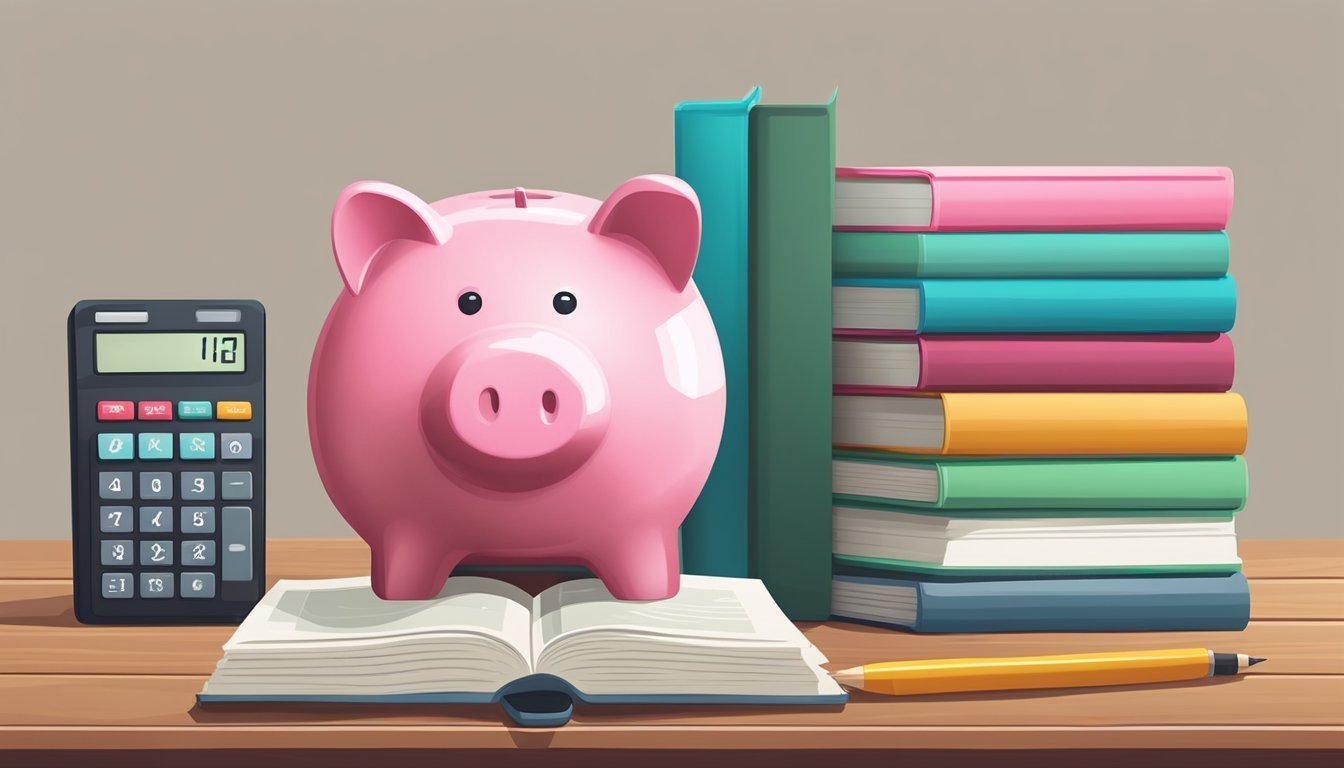Personal finance is an essential skill that can significantly impact your life.
Reading personal finance books can provide you with the knowledge and tools needed to achieve financial freedom.
These books cover various topics, from budgeting and saving to investing and retirement planning, making them valuable resources for anyone looking to take control of their financial future.
As you seek to improve your financial literacy, choosing the right books can be overwhelming.
Many authors offer unique perspectives and actionable strategies to help you reach your goals.
Exploring the top personal finance books can guide you on your journey to understanding money management and creating a secure financial foundation.
1) ‘The Millionaire Next Door’ by Thomas J. Stanley
‘The Millionaire Next Door’ is a well-respected book that explores the habits of wealthy individuals in America.
Written by Thomas J. Stanley and William D. Danko, it provides insights based on thorough research.
The authors found that many millionaires live ordinary lives.
They often drive modest cars and reside in middle-class neighborhoods.
This challenges the typical view of wealth.
You will learn that financial success often comes from saving and investing wisely.
The book identifies seven key traits common among wealthy individuals.
These traits include living below your means and prioritizing financial independence over displaying wealth.
Stanley emphasizes that many rich people focus on building assets rather than spending on luxuries.
This mindset can help you achieve lasting financial freedom.
Reading this book can inspire you to adopt similar habits.
It encourages a practical approach to managing your finances.
If you’re looking for a clear path to wealth, this book offers valuable lessons.
2) ‘Rich Dad Poor Dad’ by Robert T. Kiyosaki

In “Rich Dad Poor Dad,” you learn about the different lessons on money from two father figures in Robert Kiyosaki’s life: his biological father and the father of his best friend, the rich dad.
The book challenges common beliefs about wealth and success.
It shows that having a high income does not guarantee financial freedom.
You discover that building assets and investing wisely are key to achieving wealth.
Kiyosaki emphasizes the importance of financial education.
He argues that understanding how money works is crucial.
This knowledge helps you make informed decisions.
Through simple stories and clear examples, you can relate to the ideas presented.
The book encourages you to change your mindset about money.
Instead of working for money, you learn to make money work for you.
“Rich Dad Poor Dad” has remained popular since its release in 1997.
Many finance experts credit it as a significant influence on their careers.
This makes it a must-read for anyone seeking financial independence.
3) ‘The Total Money Makeover’ by Dave Ramsey
In “The Total Money Makeover,” Dave Ramsey shares a step-by-step plan for improving your finances.
This book focuses on practical advice to help you take control of your money.
You will learn about Ramsey’s famous “baby steps,” which guide you through building an emergency fund and paying off debts.
Each step is designed to be straightforward and achievable.
Real-life examples from people who have followed these steps add credibility and motivation.
You can see how others have changed their financial situations using these simple methods.
The book emphasizes the importance of living within your means and avoiding debt.
It encourages you to change your mindset about money.
With its clear instructions and practical tips, “The Total Money Makeover” has become a top choice for those seeking financial freedom.
This resource can help you start your journey toward a better financial future.
4) ‘Your Money or Your Life’ by Vicki Robin
‘Your Money or Your Life’ is a classic book in personal finance.
Written by Vicki Robin and Joe Dominguez, it offers a nine-step program to transform the way you think about money.
The book encourages you to take a close look at your spending habits.
It helps you understand how your money reflects your values and priorities.
By changing your relationship with money, you can work toward financial independence.
You will learn practical tools to reduce expenses and save more.
The book also emphasizes living well for less.
This approach can lead to a more fulfilling life and help you achieve your financial goals.
‘Your Money or Your Life’ has received praise over the years.
Many readers find it impactful in their journeys toward financial freedom.
It provides updates and insights that keep the advice relevant today.
By applying the lessons in this book, you can take control of your financial future.
It is a useful guide for anyone looking to improve their money management skills.
5) ‘The Intelligent Investor’ by Benjamin Graham

“The Intelligent Investor” is a classic book on investing that you should consider reading.
Written by Benjamin Graham, it focuses on sound principles that can guide your financial decisions.
Graham emphasizes the importance of a balanced investment strategy.
He suggests a 50/50 split between stocks and bonds in your portfolio.
This approach helps manage risk while allowing for growth.
The book teaches you how to analyze stocks and understand the market.
You learn to focus on long-term investments rather than short-term gains.
This philosophy encourages patience and careful planning.
Warren Buffett, one of Graham’s famous students, praises this book for its timeless wisdom.
The third edition includes updated commentaries to help you apply these principles today.
With practical advice and clear explanations, “The Intelligent Investor” remains relevant for anyone looking to improve their financial literacy and investment skills.
Reading it can provide you with a strong foundation in value investing.
6) ‘I Will Teach You to Be Rich’ by Ramit Sethi

‘I Will Teach You to Be Rich’ is a practical guide to personal finance.
Ramit Sethi shares straightforward strategies for managing your money effectively.
One key idea is to build an emergency fund.
Sethi advises having six months of expenses saved up.
This fund protects you from unexpected costs and gives you financial security.
The book emphasizes the importance of saving and investing.
Sethi suggests saving 10% and investing 20% of your gross income for long-term growth.
This strategy can lead to wealth over time.
Sethi also discusses automated investing.
Setting this up allows your money to grow without constant attention.
You can make your finances work for you while you focus on other areas of life.
With a tone that blends humor and seriousness, the book engages readers.
It encourages you to spend on things you love while cutting unnecessary expenses.
This approach makes managing money feel less daunting.
Sethi’s style appeals especially to younger readers.
His actionable tips make the book accessible, helping you take control of your financial future.
7) ‘Think and Grow Rich’ by Napoleon Hill

“Think and Grow Rich” is a classic book in personal finance and success.
Written by Napoleon Hill and first published in 1937, it focuses on the mental attitudes needed to achieve wealth.
In the book, Hill outlines thirteen principles for success.
These ideas encourage positive thinking, goal setting, and persistence.
The principles are easy to understand and can apply to various aspects of life.
Hill based his work on interviews with successful individuals like Andrew Carnegie and Thomas Edison.
Their stories serve as examples of how mindset can influence outcomes.
Many readers praise this book for its straightforward advice and motivational content.
While some may view it as just positive thinking, it offers practical steps to financial success.
If you are looking to change your financial situation, this book is a worthwhile read.
It aims to inspire action and change your perspective on wealth and achievement.
8) ‘The Little Book of Common Sense Investing’ by John C. Bogle

This book is a guide to understanding how to invest wisely.
John C. Bogle, the founder of Vanguard Group, emphasizes the importance of low-cost index funds.
You will learn that trying to pick individual stocks often leads to higher costs and risks.
Bogle argues that index funds are a better choice for most investors.
The book offers practical advice on how to build wealth over time.
With simple language and clear examples, it is accessible for anyone, regardless of their financial knowledge.
Bogle explains that staying invested for the long term tends to yield better results.
His approach focuses on minimizing fees and staying the course during market fluctuations.
Reading this book can help shift your mindset towards smart investing.
It encourages a disciplined strategy rather than chasing quick profits.
Understanding these principles can lead you closer to financial freedom.
9) ‘Financial Freedom’ by Grant Sabatier

“Financial Freedom” offers practical advice for anyone seeking to achieve financial independence.
Grant Sabatier shares his journey from having just $2.26 to a net worth exceeding $1.25 million in five years.
The book emphasizes actionable steps you can take, such as starting side hustles and investing wisely.
Sabatier’s approach blends personal stories with clear strategies.
You will learn about managing your time and money to reach your goals faster.
The author challenges common financial beliefs and provides a new perspective on wealth-building.
By rethinking traditional approaches to finance, you can identify practical strategies that align with your personal ambitions.
The author emphasizes the importance of setting clear financial goals to achieve before 30, encouraging readers to take proactive steps toward their dream lifestyles.
With the right mindset and tools, you can not only accelerate your wealth accumulation but also gain the freedom to pursue what truly matters to you.
As you read, you will find inspiration and motivation.
The insights are designed to help you believe that financial freedom is achievable.
This book is a useful resource for anyone serious about taking control of their finances.
10) ‘The Richest Man in Babylon’ by George S. Clason

“The Richest Man in Babylon” offers timeless lessons on personal finance through simple stories.
George S. Clason wrote the book in 1926.
It shares parables set in ancient Babylon.
These tales teach you essential financial principles, such as saving a portion of your income and investing wisely.
The advice is straightforward and easy to understand.
Clason emphasizes the importance of living below your means.
He also encourages you to seek knowledge and learn from successful individuals.
The characters in the book face various financial challenges.
Their experiences provide valuable insights that can help you navigate your financial journey.
This classic remains popular because it presents financial wisdom that applies to any era.
Reading this book can inspire you to take control of your financial future.
Understanding Personal Finance

Personal finance is crucial for achieving financial freedom.
It involves understanding how to manage your money, plan for the future, and make informed decisions.
This includes learning financial basics and the importance of having a solid financial plan.
Financial Literacy Basics
Financial literacy means knowing how money works in your life.
This includes understanding key concepts such as budgeting, saving, and investing.
Here are some important points to consider:
- Budgeting: Create a budget to track your income and expenses. This helps you see where your money goes and makes it easier to save.
- Saving: Aim to save at least 20% of your income. Build an emergency fund to cover unexpected costs.
- Investing: Learn about different investment options like stocks, bonds, and mutual funds. Start investing early to benefit from compound interest.
Being financially literate helps you make better decisions.
It also empowers you to set and achieve your financial goals.
Importance of Financial Planning
Creating a financial plan is essential for securing your future.
A solid plan helps you allocate resources effectively.
Here are key reasons to prioritize financial planning:
- Goal Setting: Identify your short-term and long-term financial goals. This can include saving for a home, retirement, or children’s education.
- Debt Management: Develop a strategy to pay off debts aggressively. This reduces stress and interest paid over time.
- Investment Strategy: Design a mix of investments that align with your goals and risk tolerance. Regularly review and adjust your plan as needed.
Having a financial plan provides a roadmap for your money.
It helps you stay focused and make progress toward financial freedom.
How Books Can Guide Financial Growth

Books offer valuable insights into managing money, investing wisely, and achieving financial independence.
They serve as a tool for learning practical skills and changing your mindset toward finances.
This section explores the key benefits of reading for financial education and how you can apply these lessons in your daily life.
Benefits of Reading for Financial Education
Reading finance books expands your knowledge about money management and investment strategies.
You learn from experts who provide clear guidance and real-life examples.
This information can help you understand complex concepts like budgeting, saving, and investing.
Key benefits include:
- Diverse Perspectives: Authors often share different methods for achieving financial goals, allowing you to choose what works best for you.
- Empowerment: Knowledge boosts confidence in making informed decisions about your finances.
- Skill Development: Many books offer practical tips and tools that you can use to improve your financial situation.
By immersing yourself in financial literature, you build a strong foundation for your financial growth journey.
Incorporating Learnings into Daily Life
Reading is just the first step; applying what you learn is crucial for real progress.
Start by setting specific financial goals based on insights gained from books.
This could include reducing debt, building an emergency fund, or starting an investment portfolio.
Tips for application:
- Create Actionable Plans: Break down your goals into manageable steps. For instance, if a book emphasizes budgeting, set up a monthly budget to track your spending.
- Regular Review: Revisit key concepts from your reading regularly. This reinforces what you’ve learned and allows you to adjust your strategies as needed.
- Join a Community: Engage with others who share similar financial goals. This can enhance accountability and support your growth.
Using the knowledge from books effectively can lead to lasting changes in your financial life.
Frequently Asked Questions
This section addresses common queries about personal finance books that can help you gain financial freedom.
You will find insights into transformative reads, beginner-friendly options, expert recommendations, and influential works that have lasted through the years.
Which personal finance books are considered the most transformative for achieving financial freedom?
Books like ‘Rich Dad Poor Dad’ by Robert T. Kiyosaki and ‘The Millionaire Next Door’ by Thomas J. Stanley offer powerful lessons.
They help you shift your mindset about money and wealth.
These titles can significantly influence your approach to financial independence.
What are the best beginner-friendly books on finance and investing?
‘The Total Money Makeover’ by Dave Ramsey is an excellent choice for beginners.
It provides clear steps for budgeting and saving.
Another good option is ‘Your Money or Your Life’ by Vicki Robin, which guides you on transforming your relationship with money.
Which books on money and investing do experts commonly recommend?
Many experts endorse ‘The Intelligent Investor’ by Benjamin Graham.
This book is regarded as a foundational text in investing strategies.
Additionally, ‘Rich Dad’s Cashflow Quadrant’ by Robert Kiyosaki is also often highlighted for its practical insights.
What are some must-read personal finance books for long-term wealth building?
‘The Millionaire Next Door’ by T. Stanley explores habits of wealthy individuals.
It emphasizes living below your means. ‘Your Money or Your Life’ by V. Robin also advocates for aligning your spending with your values, aiding long-term wealth growth.
Which finance books have been influential and stood the test of time?
Books like ‘The Intelligent Investor’ by Benjamin Graham have influenced generations of investors.
Its principles continue to apply today. ‘Rich Dad Poor Dad’ by Robert T. Kiyosaki remains popular for its insights into personal finance and investing.
Can you suggest any books that combine storytelling with financial education for financial freedom?
‘The Millionaire Next Door’ by Thomas J. Stanley shares real-life examples and stories that help illustrate key concepts.
Additionally, ‘Rich Dad Poor Dad’ by Robert T. Kiyosaki offers personal anecdotes alongside financial lessons, making it engaging and informative.


